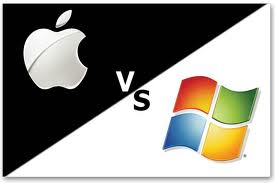Apple Sues Microsoft for Copyright Infringement
 March 17, 1988
March 17, 1988
Apple Computer famously sues Microsoft Corporation for copyright infringement in its Windows operating system.
In November of 1985, after Apple’s board pushed out Steve Jobs, Microsoft released Windows 1.0 and Apple threatened to sue since they believed that Microsoft had stolen several design elements of the Macintosh operating system. Bill Gates took advantage of then Apple CEO John Scully’s lack of technology vision to get Apple to license certain parts of its Macintosh GUI to Microsoft. Scully did not foresee that the initial rudimentary version of Windows would be much of a threat of competing with the Macintosh operating system. The deal also ensured that Microsoft would continue to develop Word and Excel for Macintosh. However, when Microsoft released Windows 2.0 in December of 1997 and it had much more similarity to the look and feel of the Macintosh, Apple proceeded with a lawsuit.
What Apple’s lawyers failed to notice was that the license agreed to in 1985 covered all future Microsoft software and not just Windows 1.0. Therefore it was ruled that most of Apple’s copyright claims were covered by the license agreement. After a number of appeals, the legal battle ended when the Supreme Court denied Apple’s final appeal on February 21, 1995.
However, ongoing infringement questions regarding the graphical user interface were finally settled once and for all when Apple and Microsoft signed their famous cooperative agreement in August 1997. One reason that Microsoft agreed to the 1997 cross-licensing deal (in which it was rumored that Microsoft paid Apple up to $2 billion) was Apple’s increasingly large patent portfolio. Apple was allegedly preparing a multi-billion dollar lawsuit against Microsoft, in addition to their QuickTime patent infringement lawsuit filed in 1994. Apple began amassing their patent portfolio largely in response to their loss of this 1988 copyright infringement lawsuit, since they had not patented many of the original Macintosh operating system elements. This led to many other technology companies following suit and the technology patent “arms race” prevalent today.
